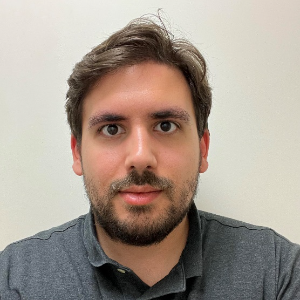Title : Rat kidney decellularization in purpose of development of tissue engineering scaffold and recellularization with human mesenchymal stem cells derived from human umbilical cord
Abstract:
Chronic kidney disease is a prevalent global issue as the 18th leading cause of death worldwide. The escalating demand for kidney transplants has prompted the scientific community to explore alternative strategies. In such a way, one promising alternative strategy to address the global demand of kidney transplants, is the state-of-the-art tissue engineering approaches, including the decellulatization method.The objective of the research was to evaluate two distinct decellularization approaches for the production of whole kidney bioscaffolds. Wistar rat whole kidneys were decellularized using two different approaches. The decellularization solutions applied in both approaches were identical, involving the use of 3-[(3-cholamidopropyl) dimethylammonio]-1-propanesulfonate (CHAPS) and sodium dodecyl sulfate (SDS) buffers for 12 hours each, followed by incubation in a final buffer containing DNAses.. Both approaches included three decellularization cycles for a total time of period of three weeks.. The produced scaffolds were thoroughly analysed, including histological examination, biochemical assessments, DNA quantification, cytotoxicity assays, and recellularization of the acellular kidneys utilizing the Mesenchymal Stromal Cells (MSCs). The results obtained from histological, biochemical, and DNA quantification analyses confirmed that the second approach had the most favourable outcome, in terms of preservation of whole kidney composition and cell elimination. Furthermore, both decellularization approaches successfully produced acellular whole kidney scaffolds that were further successfully recellularized with the MSCs. The successful recellularization of the acellular kidneys further emphasizes the potential applicability of this approach in the field of tissue engineering, regenerative medicine, and transplantation. This proof-of-concept study may benefit the research focused on alternative strategies for addressing chronic kidney disease issues. The development of acellular kidney scaffolds may offer a potential solutions to the global challenge of producing renal transplants. The next step of this study will be the application of the same principles in whole kidneys derived from large animal models or from cadaver donors and the possibility of recellularization with patient’s cells, thus bringing the personalised medicine one step closer to its clinical application.
Audience Take Away:
- Gain insights into innovative approaches in tissue engineering and regenerative medicine in the context of renal scaffold development.
- The knowledge gained can assist in the development of more accurate and functional kidney scaffolds, improving the development of renal scaffolds.
- New information on alternative decellularization approaches that can be utilized to address challenges and design problems related to bioscaffold development.



